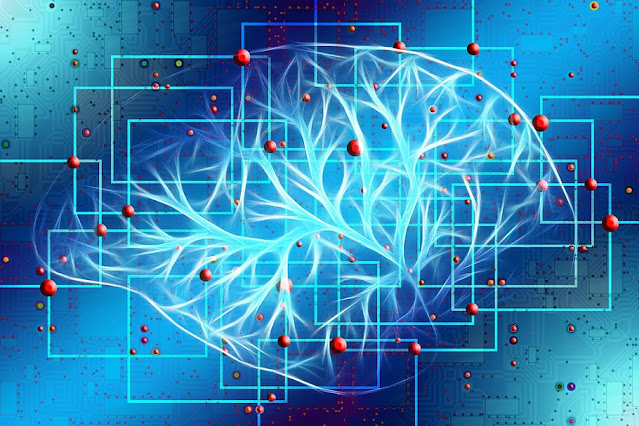Unveiling the Future: AI's Role, from Lab to Life and What Lies Ahead
 |
Artificial Intelligence (AI) in making |
In recent years, Artificial Intelligence (AI) has emerged as a groundbreaking technology that has the potential to revolutionize every aspect of our daily lives. From voice assistants like Siri and Alexa to personalized recommendations on streaming platforms, AI has seamlessly integrated into our routines. This article explores the far-reaching impact of Artificial Intelligence in everyday life, highlighting its applications, benefits, and potential concerns.
How Does Artificial Intelligence Work?
To understand the significance of AI in our lives, it is essential to comprehend how this technology operates. AI involves the process of developing smart machines capable of performing tasks that normally require human intelligence. It includes various subfields, like natural language processing, machine learning, robotics, and computer vision.
Machine Learning: Empowering AI with Learning Abilities
Machine Learning (ML) is a basic component of AI that enables machines to learn and improve from past incidents without explicit programming. Through the analysis of vast amounts of data, ML algorithms can identify patterns, make predictions, and optimize their performance over time. This ability to learn and adapt lies at the heart of many AI applications.
Artificial Intelligence (AI) in Everyday Life: Enhancing Our Experiences
Artificial Intelligence has permeated numerous aspects of our daily lives, enhancing our experiences and simplifying tasks. Let's explore some of the key areas where AI has made a significant impact:
1. Personal Assistants: Your AI-Powered Sidekick
Virtual personal assistants like Siri, Google Assistant, and Alexa have become ubiquitous. These AI-powered assistants respond to voice commands, answer questions, set reminders, and perform various tasks on our behalf. They have transformed the way we interact with our devices, making everyday tasks more efficient and convenient.
 |
"Alexa" an Artificial Intelligence (AI)-powered Virtual Personal Assistant |
2. Smart Homes: Automating Your Living Space
AI has facilitated the rise of smart homes, where interconnected devices and appliances communicate with each other, creating a seamless and intelligent living environment. From smart thermostats that learn your temperature preferences to lighting systems that adjust based on your presence, AI brings convenience, energy efficiency, and enhanced security to our homes.
 |
Artificial Intelligence (AI) has become a synonym for smart homes |
3. Healthcare: Transforming Patient Care
Artificial Intelligence has the potential to revolutionize healthcare by enabling faster and more accurate diagnoses, personalized treatments, and improved patient care. AI algorithms can analyze medical images, detect patterns, and assist in diagnosing conditions such as cancer and cardiovascular diseases. Additionally, wearable devices equipped with AI capabilities can monitor vital signs and provide real-time health insights.
 |
Artificial Intelligence (AI) has transformed traditional healthcare |
4. Transportation: Redefining Mobility
AI is reshaping the transportation industry, paving the way for autonomous vehicles and smarter transportation systems. Self-driving cars powered by AI algorithms are being developed, promising safer roads, reduced traffic congestion, and increased accessibility for individuals with limited mobility. AI also plays a crucial role in optimizing logistics, predicting traffic patterns, and improving the efficiency of public transportation.
 |
Artificial Intelligence (AI) is redefining Transportation |
FAQs (Frequently Asked Questions)
Q1: What are the potential risks associated with AI in everyday life?
AI brings tremendous benefits, but it also raises concerns. One of the primary concerns is the potential impact on employment, as AI and automation may replace certain job roles. Additionally, there are ethical concerns related to data privacy, algorithmic bias, and the potential misuse of AI technologies.
Q2: Can AI ever surpass human intelligence?
While AI has made remarkable progress, reaching human-level general intelligence, also known as Artificial General Intelligence (AGI), remains a significant challenge. AGI refers to AI systems that can understand, learn, and apply knowledge across a wide range of tasks with the same flexibility and adaptability as humans.
Q3: How is AI used in the financial industry?
The financial industry has embraced AI to streamline processes, enhance fraud detection, and improve customer experiences. AI-powered algorithms analyze large amounts of financial data to identify specific patterns, find anomalies, and make predictions for financial strategies. Chatbots equipped with AI capabilities are also employed for customer support and personalized financial advice.
Q4: Can AI help in addressing climate change?
Absolutely. AI can contribute to addressing climate change by optimizing energy consumption, predicting environmental patterns, and improving resource management. It enables more accurate weather forecasting, facilitates renewable energy integration, and assists in developing sustainable solutions.
Q5: Is AI only limited to large organizations or tech companies?
No, AI is not limited to large organizations or tech companies. Many startups and smaller businesses are leveraging AI technologies to enhance their operations, improve customer experiences, and gain a competitive edge. The democratization of AI tools and resources has made it more accessible to businesses of all sizes.
Q6: What does the future hold for AI in everyday life?
The future of AI in everyday life is incredibly promising. We can expect AI to further integrate into our homes, workplaces, and cities. From personalized healthcare advancements to autonomous transportation, AI will continue to shape our daily routines and redefine the way we live.
Conclusion
Artificial Intelligence has now become an integral part of our daily lives, changing the way we work, communicate, and make interaction with technology. From personal assistants to healthcare innovations and smart homes, AI offers unparalleled convenience and efficiency. However, we must also address the ethical and societal implications to ensure that AI development remains aligned with human values and needs. As AI continues to evolve, we can look forward to a future where this remarkable technology enhances our lives while augmenting our human capabilities.



Comments
Post a Comment